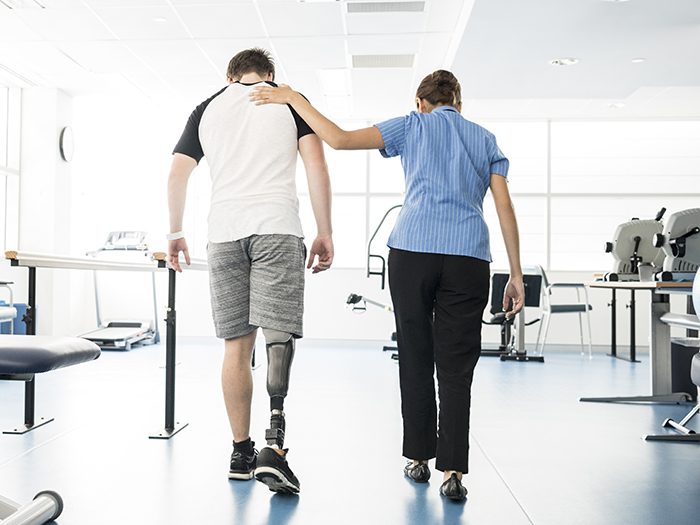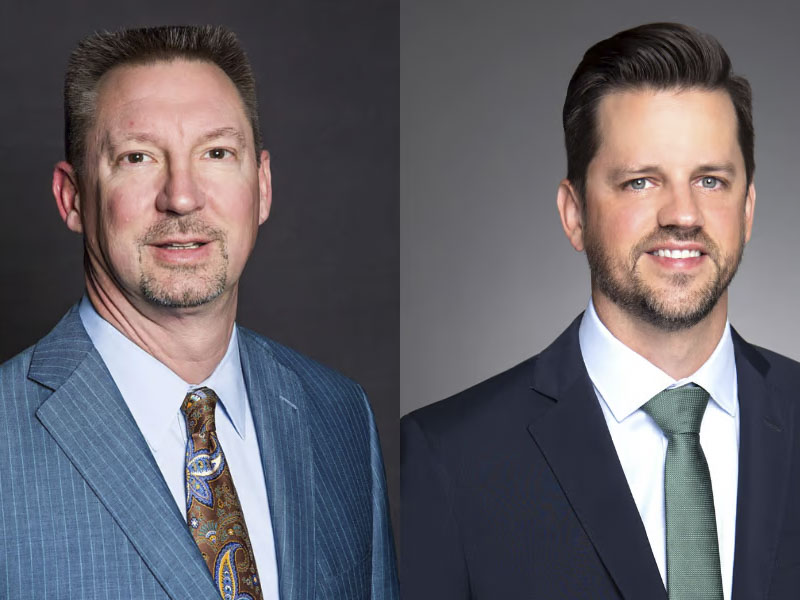A Tragic Amputation in the Workplace — What Comes Next?

Fortunately, most companies aren’t confronted with amputation cases often — or ever.
So when faced with a workers’ compensation case involving amputation, many companies find themselves wading into uncharted territory, attempting to provide swift care to the worker, communicate with the family in a compassionate manner, and quickly make costly decisions that can impact the patient’s outcome.
But they often do so without a solid foundation of knowledge to fall back on. To say that it can be overwhelming is an understatement.
At the National Workers’ Compensation and Disability Conference (NWCDC), running from November 6th through 8th at Mandalay Bay in Las Vegas, the breakout session “Managing Amputation Cases for Optimal Outcomes” will act as a primer for companies on how to handle a workers’ compensation case involving amputation, and how to avoid common pitfalls to ensure an optimal outcome for all parties involved.
Jan A. Saunders, nationally certified prosthetic and orthotic expert, will be sharing his expertise during the breakout session. Saunders says one of the greatest challenges companies face when it comes to managing amputation cases for optimal outcomes is a lack of early intervention from a knowledgeable consultant.
An ill-informed decision — even one made with the best intentions — can end up having a detrimental effect, rather than a positive effect.
As Saunders explained, individuals tasked with handling amputation cases within a company are typically not experts, understandably, in the realm of amputation or prosthetics. This can lead to unintentionally irresponsible decision-making, which can negatively impact outcomes for injured workers, and can drive up costs astronomically for employers.
Following an amputation, he said, decisions can be emotionally charged, including decisions about prosthetics.
“Everyone is recommending a Ferrari when a nice Escalade will do,” he said.
Injured employees sometimes assume that the most expensive option is the best one. Employers trying to do the right thing by their injured worker may opt for that expensive option, concerned that denying the request will appear insensitive, hurt employee morale or will motivate the injured worker to take legal action.
The problem with that strategy, as Saunders explains, is that the most costly option isn’t necessarily the best choice for achieving the best possible outcome for the patient.
In fact, the more costly, of-the-moment prosthetic can have negative impacts on a patient’s outcome—if they are unable to utilize the technology due to a previous injury or a characteristic unique to their particular amputation, hundreds of thousands of dollars can end up sitting in a closet.
In other words, an ill-informed decision — even one made with the best intentions — can end up having a detrimental effect, rather than a positive effect.
Further challenges that will be discussed during the session include maintaining communications with the injured worker’s family; working with departments across the company to smooth the process for both the employee and their family; identifying the cost drivers specific to prosthetics and orthotics; and more. &
About the National Workers’ Compensation and Disability Conference® & Expo:
As the largest National Workers’ Comp and Disability Conference for more than 25 years, NWCDC offers endless opportunities that will propel your workers’ comp and disability management programs forward. With the biggest Expo in the industry, you’ll be able to touch, compare and contrast the newest solutions from leading vendors in every category, and gain knowledge on-the-go at in-depth sponsored sessions on the show floor. Additionally, NWCDC offers valuable networking opportunities so you can make important contacts and share strategies with your peers.
You can also customize your learning experience with breakout sessions in six distinct program tracks: Claims Management, Medical Management, Program Management, Disability Management, Legal/Regulatory, and Technology. Plus, you’ll hear from Risk & Insurance’s Teddy Award winners for excellence in lowering workers’ comp risk.
Learn more about NWCDC and special savings for Risk & Insurance® subscribers here.











